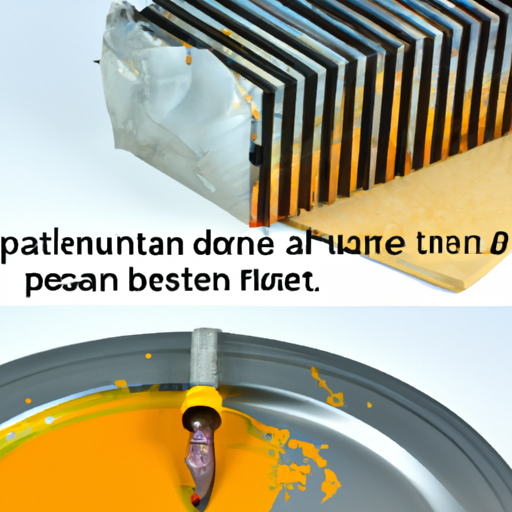

Title: Advancements in Current Transformer Manufacturing Processes

1. Core Material Selection and Design (200 words) The core material used in CTs significantly impacts their performance and accuracy. Traditional CTs often employed laminated iron cores, but recent developments have introduced new materials such as amorphous alloys and nanocrystalline cores. These materials offer improved magnetic properties, reduced core losses, and enhanced accuracy over a wide range of currents. Additionally, advanced computer simulations and modeling techniques aid in optimizing the core design, ensuring minimal magnetic flux leakage and improved linearity.
2. Winding Techniques (200 words) The winding process is critical in achieving accurate current measurement. Traditional CTs used hand-wound copper wire, which was time-consuming and prone to human errors. However, automated winding machines have revolutionized this process, enabling precise and consistent winding patterns. These machines can handle a wide range of wire sizes and insulation materials, ensuring optimal performance and reducing manufacturing time.
Furthermore, advancements in printed circuit board (PCB) technology have led to the development of planar CTs. These CTs utilize PCBs with conductive traces, eliminating the need for traditional wire windings. Planar CTs offer compact designs, improved accuracy, and reduced manufacturing costs.
3. Encapsulation and Insulation (200 words) To ensure the safety and longevity of CTs, proper encapsulation and insulation techniques are crucial. Traditional CTs often used epoxy resin for encapsulation, which had limitations in terms of thermal conductivity and mechanical strength. However, the introduction of advanced polymer materials, such as silicone rubber and polyurethane, has overcome these limitations. These materials provide excellent electrical insulation, high-temperature resistance, and enhanced mechanical properties, ensuring reliable operation in harsh environments.
4. Calibration and Testing (200 words) Accurate calibration and testing are essential to guarantee the performance and reliability of CTs. Traditional calibration methods involved manual adjustments and measurements, which were time-consuming and prone to errors. However, the advent of automated calibration systems has significantly improved the efficiency and accuracy of this process. These systems utilize advanced algorithms and precision instruments to calibrate CTs with high precision, reducing human intervention and ensuring consistent performance.
Additionally, non-destructive testing techniques, such as partial discharge and frequency response analysis, have become integral in assessing the insulation quality and detecting potential faults in CTs. These techniques enable manufacturers to identify any manufacturing defects or insulation degradation, ensuring the reliability and safety of the final product.
Conclusion (100 words) The manufacturing processes for current transformers have witnessed significant advancements in recent years, driven by the need for improved accuracy, reliability, and efficiency. The utilization of advanced core materials, automated winding techniques, innovative encapsulation and insulation materials, and precise calibration and testing methods have revolutionized the CT industry. These advancements have not only enhanced the performance of CTs but also reduced manufacturing costs and improved overall product quality. As technology continues to evolve, it is expected that further innovations will continue to shape the future of CT manufacturing.
Title: Advancements in Current Transformer Manufacturing Processes

1. Core Material Selection and Design (200 words) The core material used in CTs significantly impacts their performance and accuracy. Traditional CTs often employed laminated iron cores, but recent developments have introduced new materials such as amorphous alloys and nanocrystalline cores. These materials offer improved magnetic properties, reduced core losses, and enhanced accuracy over a wide range of currents. Additionally, advanced computer simulations and modeling techniques aid in optimizing the core design, ensuring minimal magnetic flux leakage and improved linearity.
2. Winding Techniques (200 words) The winding process is critical in achieving accurate current measurement. Traditional CTs used hand-wound copper wire, which was time-consuming and prone to human errors. However, automated winding machines have revolutionized this process, enabling precise and consistent winding patterns. These machines can handle a wide range of wire sizes and insulation materials, ensuring optimal performance and reducing manufacturing time.
Furthermore, advancements in printed circuit board (PCB) technology have led to the development of planar CTs. These CTs utilize PCBs with conductive traces, eliminating the need for traditional wire windings. Planar CTs offer compact designs, improved accuracy, and reduced manufacturing costs.
3. Encapsulation and Insulation (200 words) To ensure the safety and longevity of CTs, proper encapsulation and insulation techniques are crucial. Traditional CTs often used epoxy resin for encapsulation, which had limitations in terms of thermal conductivity and mechanical strength. However, the introduction of advanced polymer materials, such as silicone rubber and polyurethane, has overcome these limitations. These materials provide excellent electrical insulation, high-temperature resistance, and enhanced mechanical properties, ensuring reliable operation in harsh environments.
4. Calibration and Testing (200 words) Accurate calibration and testing are essential to guarantee the performance and reliability of CTs. Traditional calibration methods involved manual adjustments and measurements, which were time-consuming and prone to errors. However, the advent of automated calibration systems has significantly improved the efficiency and accuracy of this process. These systems utilize advanced algorithms and precision instruments to calibrate CTs with high precision, reducing human intervention and ensuring consistent performance.
Additionally, non-destructive testing techniques, such as partial discharge and frequency response analysis, have become integral in assessing the insulation quality and detecting potential faults in CTs. These techniques enable manufacturers to identify any manufacturing defects or insulation degradation, ensuring the reliability and safety of the final product.
Conclusion (100 words) The manufacturing processes for current transformers have witnessed significant advancements in recent years, driven by the need for improved accuracy, reliability, and efficiency. The utilization of advanced core materials, automated winding techniques, innovative encapsulation and insulation materials, and precise calibration and testing methods have revolutionized the CT industry. These advancements have not only enhanced the performance of CTs but also reduced manufacturing costs and improved overall product quality. As technology continues to evolve, it is expected that further innovations will continue to shape the future of CT manufacturing.